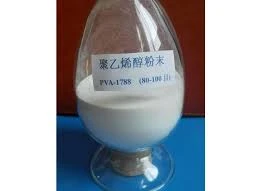Understanding Chemical Thickening Agents Their Role in Various Industries
Chemical thickening agents are essential components in various industrial applications, ranging from food production to cosmetics, pharmaceuticals, and beyond. These substances are used to modify the viscosity of liquids, thereby improving their texture, stability, and overall performance. In this article, we will explore the types of thickening agents, their mechanisms of action, and their importance across different sectors.
Types of Chemical Thickening Agents
Thickening agents can be broadly classified into two categories natural and synthetic. Natural thickening agents include substances derived from plants or animals, such as starch, guar gum, xanthan gum, and pectin. These agents are generally considered safe for consumption and are commonly used in food products, sauces, and dressings to achieve a desired consistency.
On the other hand, synthetic thickening agents are chemically formulated compounds. Examples include carbomers, polyacrylamides, and certain types of cellulose. These agents provide more controlled thickening properties and are often used in cosmetics and pharmaceutical formulations for their ability to stabilize emulsions and enhance application qualities.
Mechanisms of Action
The thickening process usually involves increasing the intermolecular forces within a solution, allowing it to resist flow more effectively. This can occur through various mechanisms, including hydrogen bonding, entanglement of polymer chains, or the formation of a three-dimensional network within the liquid.
For instance, when a natural gum, like xanthan gum, is added to water, it hydrates and swells, creating a gel-like structure that traps water molecules. This not only thickens the liquid but also improves its stability against heat and microbial growth. Similarly, synthetic thickening agents like carbomers form a gel upon neutralization, which increases the viscosity of the formulation when mixed with water.
chemical thickening agent

Applications Across Industries
1. Food Industry In the food sector, thickening agents play a crucial role in providing desirable texture, mouthfeel, and stability. They are commonly used in sauces, soups, and dairy products to enhance their viscosity and prevent separation. For example, tomato sauces often incorporate xanthan gum to achieve the perfect thickness that adheres to pasta.
2. Cosmetics and Personal Care Products In cosmetics, thickening agents are vital for creating products with appealing textures, such as creams, lotions, and gels. Natural and synthetic thickeners help stabilize emulsions, ensuring uniform distribution of ingredients, which is critical for product efficacy. Additionally, they improve the sensory experience of the product during application.
3. Pharmaceuticals In the pharmaceutical industry, thickening agents are used in formulations for both oral and topical applications. They aid in improving the consistency of suspensions and gels, allowing for better dosing accuracy and patient comfort. Furthermore, certain thickeners can protect active ingredients from degradation.
Environmental Considerations
While the use of chemical thickening agents is widespread, there are ongoing discussions regarding their environmental impact. Natural thickeners, sourced from renewable resources, are often regarded as more sustainable. In contrast, synthetic thickeners can contribute to pollution and waste if not managed properly. This has prompted the industry to explore biodegradable alternatives and sustainable sourcing practices for natural agents.
Conclusion
Chemical thickening agents are versatile additives that play a vital role in improving the functionality, stability, and sensory qualities of various products across different industries. Understanding their types, mechanisms, and applications is essential for manufacturers seeking to optimize their formulations. As the demand for sustainable and effective solutions continues to grow, the potential for innovation in thickening agents remains vast, paving the way for better products in the future.
-
Rdp Powder: Key Considerations for Wholesalers in the Building Materials IndustryNewsJul.08,2025
-
Key Considerations for Wholesalers: Navigating the World of Hpmc - Based ProductsNewsJul.08,2025
-
Hpmc Detergent: Key Considerations for WholesalersNewsJul.08,2025
-
Key Considerations for Wholesalers: China Hpmc For Tile Adhesive, Coating Additives, Concrete Additives, and MoreNewsJul.08,2025
-
Crucial Considerations for Wholesalers: Navigating the World of Construction MaterialsNewsJul.08,2025
-
Key Considerations for Wholesalers Sourcing Additive For Cement, Additive For Concrete, Additive For Putty from Additive Manufacturer Shijiazhuang Gaocheng District Yongfeng Cellulose Co., Ltd.NewsJul.08,2025




